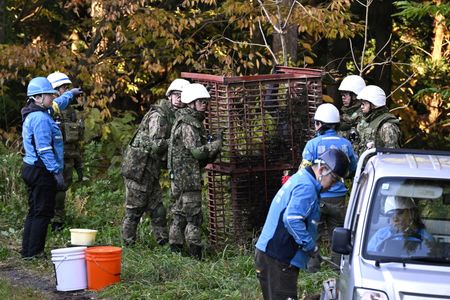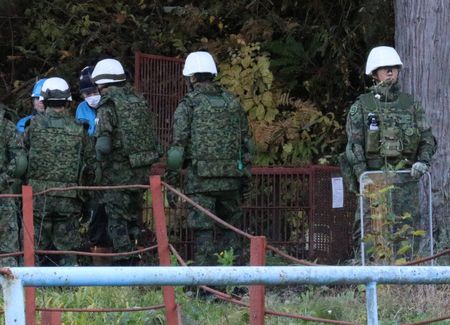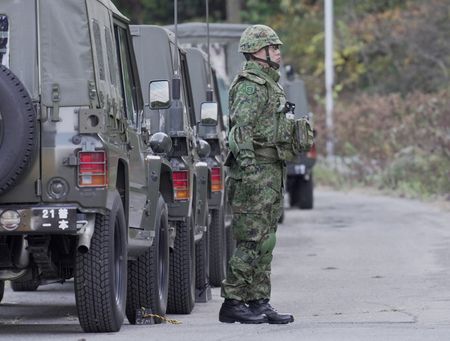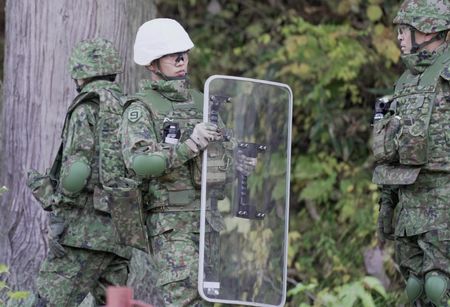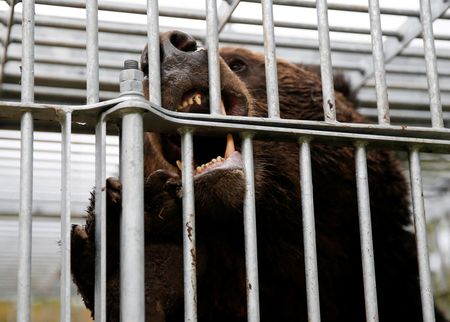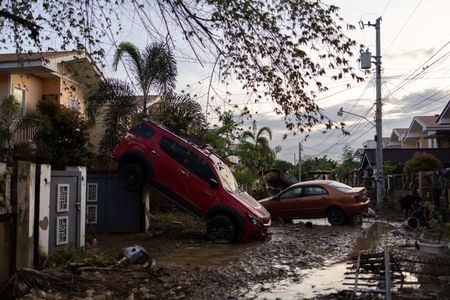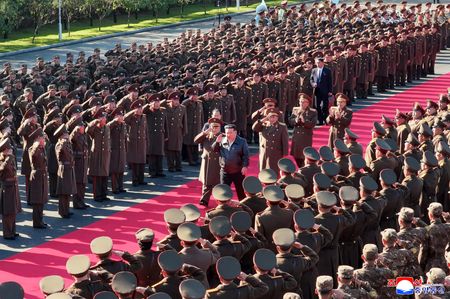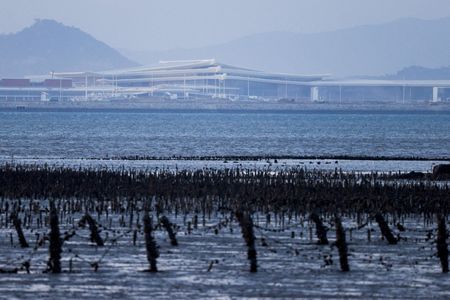By Tim Kelly and Tom Bateman
KAZUNO, Japan (Reuters) -Japan deployed troops to the country’s rugged north on Wednesday to help trap bears after local authorities said besieged communities were struggling to cope with an unprecedented wave of attacks.
The operation began in Kazuno, a small town nestled among forested mountains that has seen a sharp rise in bear sightings. For weeks, residents have been urged to avoid the thick woods and stay indoors after dark to keep clear of bears foraging near homes for food.
“Even if just temporary, the SDF’s help is a big relief,” said Yasuhiro Kitakata, who oversees the town’s bear department. “I used to think bears would always run away when they heard noise, but now they actually come toward you. They’re truly frightening animals,” he added.
There have been more than 100 bear attacks with a record 12 people killed across Japan since April, according to the Ministry of the Environment. Two-thirds of those deaths were in Akita prefecture, where Kazuno is located, and nearby Iwate.
In Akita authorities say bear sightings have jumped six-fold this year to more than 8,000, prompting its governor to request help from the Self-Defense Forces last week.
“The townspeople feel the danger every day,” Kazuno Mayor Shinji Sasamoto said after meeting 15 or so soldiers who rolled into town in an army truck and jeeps, equipped with body armour and a large map.
“It has affected how people live their lives, forcing them to stop going out or cancel events,” Sasamoto said.
The troops were there to transport, set and inspect the steel-barred traps used to capture bears that are later shot by trained hunters hired to cull the population.
On a mountain road outside the town, local forestry officials showed soldiers how to assemble and load the traps onto trucks. The white-helmeted troops carried bear spray and were guarded by others with shields and long wooden poles shaped like rifles usually used for bayonet drills.
“I thought maybe something was on fire,” said a local resident who stepped outside to see what was happening, her radio blaring to scare off bears. “We all try not to encounter the bears, but we keep hearing about people getting attacked,” she said, declining to give her name.
After Kazuno, a town of around 30,000 people known for its hot springs, scenery and variety of sweet apples, the soldiers will head for the cities of Odate and Kitaakita under an agreement lasting until the end of November.
ATTACKS IN SUPERMARKET, HOT SPRING RESORT
Rising bear numbers, climate change-driven shifts in natural food sources and depopulation of rural areas are increasingly bringing people into contact with bears, while an ageing cohort of hunters who authorities once relied on find themselves overwhelmed.
In recent weeks, bears have attacked customers inside a supermarket, jumped a tourist waiting at a bus stop near a UNESCO World Heritage site and mutilated a worker at a hot spring resort. Some schools have temporarily closed after bears were spotted wandering around their grounds.
Bear attacks usually peak in October and November as the animals forage intensively before winter hibernation.
“Last year there was an abundance of food in the mountains, and many cubs were born. This year, the food supply has run out,” said Kitakata in Kazuno.
Japanese black bears, common across most of the country, can weigh up to 130 kg (287 pounds). Brown bears on the northern island of Hokkaido can weigh as much as 400 kg.
It is not the first time Japan has deployed troops to assist in wildlife control. The military provided aerial surveillance for hunts of wild deer around a decade ago and culled sea lions to protect fisheries in the 1960s.
Tokyo will this month announce a package of emergency measures to deal with the bear problem including recruiting more licensed hunters, Deputy Chief Cabinet Secretary Kei Sato told a press conference. In September, the government relaxed gun rules to make it easier for hunters to shoot bears in urban areas.
“As bears continue to enter populated areas in many regions and injuries from bear attacks increase daily, we absolutely cannot afford to put off bear countermeasures,” he said.
(Reporting by Tim Kelly and Tom Bateman in Kazuno and John Geddie in Tokyo; Editing by Edwina Gibbs and Hugh Lawson)

